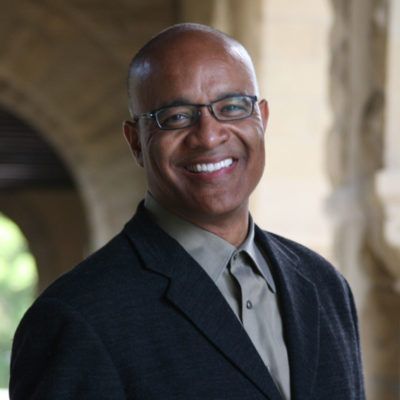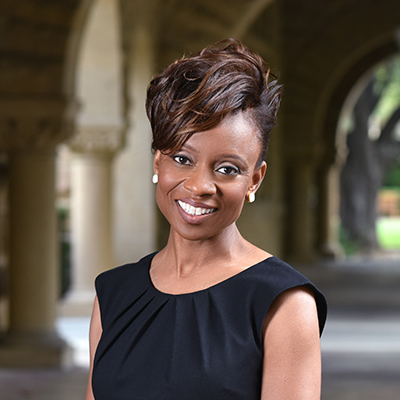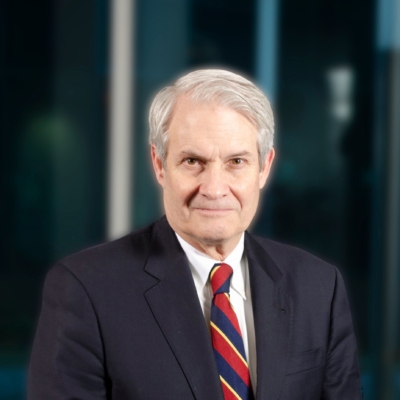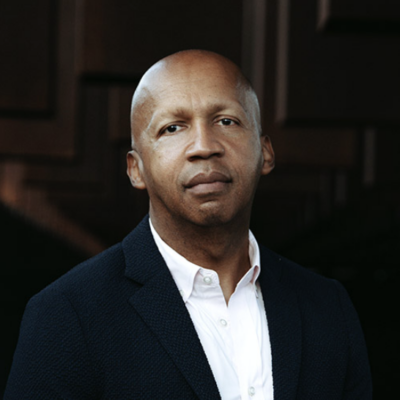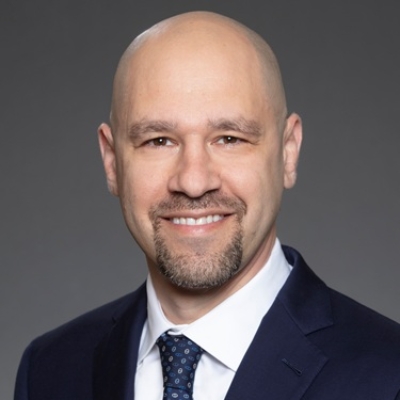S-Term 2024
Start Your Next Year at Stanford Law Inspired
September 9-20, 2024
Inspire. Innovate. Lead. That’s how SLS keeps legal education relevant and engaging. This September, 2L, 3L and JSD students can experience our latest innovation: the S-Term.
This fall, for ten days before the start of fall term, S-Term will offer a unique, immersive learning experience designed for students interested in exploring new fields. Selecting from intriguing courses not offered during the regular SLS term, you can strengthen your knowledge base — and satisfy your curiosity — while studying with faculty leaders, renowned practitioners, judges, international academics, and an intimate cohort of peers. Best of all, you can start your next year at SLS inspired.
This September, let the world come to you when practitioners and faculty convene at Stanford Law for S-Term.
Registration: April 16 to April 30, 2024.
Info Session
Colleen Honigsberg, Associate Dean of Curriculum and Professor of Law, will describe this exciting new offering. Learn more and meet the people teaching S-Term courses.
View Recording
Why S-Term? Explore the Benefits
This September, experience this only-at-SLS experiment in inspirational learning. Sign up for an intensive, S-Term offering to:
- Learn from faculty and practitioners not available during the regular school year
- Engage in-depth with one instructor and focus on a single subject
- Balance your workload across three quarters
- Get hands-on training through field study courses that take you off campus
- With a small cohort on campus early, bond with SLS peers
- Experience it all with no additional tuition
- Join the experiment and shape opportunities for future 2Ls and 3Ls
Courses That Spark Curiosity and Expand Skills
Instructors
Ralph Richard Banks
Ralph Richard Banks (BA ’87, MA ’87) is the Jackson Eli Reynolds Professor of Law at Stanford Law School, the co-founder and Faculty Director of the Stanford Center for Racial Justice, and Professor, by courtesy, at the School of Education. A native of Cleveland, Ohio and a graduate of Stanford University and Harvard Law School (JD 1994), Banks has been a member of the Stanford faculty since 1998. Prior to joining the law school, he practiced law at O’Melveny & Myers, was the Reginald F. Lewis Fellow at Harvard Law School and clerked for a federal judge, the Honorable Barrington D. Parker, Jr. (then of the Southern District of New York). Professor Banks teaches and writes about family law, employment discrimination law and race and the law. He is the author of Is Marriage for White People? How the African American Marriage Decline Affects Everyone. At Stanford, he is affiliated with the Michelle R. Clayman Institute for Gender Research, the Center for Comparative Studies in Race and the Ethnicity, the Stanford Center for Opportunity Policy in Education and the Center for the Study of Poverty and Inequality. His writings have appeared in a wide range of popular and scholarly publications, including the Stanford Law Review, the Yale Law Journal, The New York Times and the Los Angeles Times. He has been interviewed and quoted by numerous print and broadcast media, including ABC News/Nightline, National Public Radio, The New York Times and the Los Angeles Times, among others.
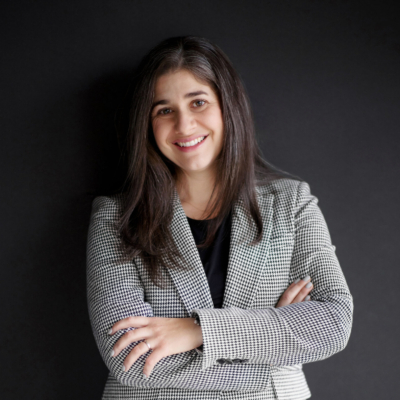
Judge Rachel Bloomekatz
Rachel Bloomekatz was confirmed as a judge to the U.S. Court of Appeals for the Sixth Circuit in July 2023. Prior to joining the court, Judge Bloomekatz had an accomplished career in public interest lawyering, focusing on appeals and complex litigation issues. She was a solo practitioner at Bloomekatz Law, which she founded in 2019 in Columbus, Ohio. Previously, she was a principal at Gupta Wessler, an associate at Jones Day, and an assistant attorney general for the Commonwealth of Massachusetts.
Judge Bloomekatz also served as a law clerk for U.S. Supreme Court Justice Stephen Breyer, Chief Justice Margaret Marshall on the Massachusetts Supreme Court, and Judge Guido Calabresi on the Second Circuit. She received her J.D. from UCLA School of Law in 2008 and her A.B. from Harvard University in 2004.
Judge Bloomekatz is an active member of the community in Columbus, Ohio, where she lives with her husband and two children. She has served as an adjunct professor teaching Federal Courts and Community Lawyering at The Ohio State University’s Moritz College of Law and on the board of Jewish Family Services of Central Ohio, which helps to provide services and training for low-income individuals in central Ohio.

Mark Blumling
A passionate advocate of healthcare and life sciences innovation, Mark has devoted his career to improving population health and patient outcomes. Mark was most recently CEO, President and Founder at Headlands Research, an international clinical trial site organization, and previously, CEO of Genos, a healthcare big data company (which he co-founded and which was acquired in 2017), CEO of Relevare Pharmaceuticals (a drug development pharmaceutical company based in San Francisco and Australia), and Founder and COO of Hyperion Therapeutics (NASDAQ: HPTX; acquired in 2015). Mark began his career in the Office of Science & Technology at SmithKline Beecham, where he was involved in the creation and development of new business ventures, and at Orchid Biosciences (NASDAQ: ORCH), where he helped lead the company’s successful turnaround. Mark was also an investor, focused on venture capital, growth equity and special situations, at Burrill & Company.
Mark received a JD from Stanford Law School, an MSc (Economics) from the London School of Economics, and a BA in Human Biology from Stanford University. He is a Member of the Council on Foreign Relations.
Jennifer Eberhardt
Jennifer Eberhardt is a Professor (by courtesy) of Law and Professor in the Department of Psychology. Professor Eberhardt’s primary research interests include stereotyping, prejudice, and stigma. Her most recent research examines the nature of racial categories. She focuses on the social psychological implications of viewing race as a natural category (rather than as a socially created category) and the link between racial stereotyping and racial categorization. She received her Ph.D. in Psychology from Harvard University in 1993.
Thomas Griffith
Thomas B. Griffith was appointed to the United States Court of Appeals for the D. C. Circuit by President George W. Bush in 2005. He retired from the D. C. Circuit in 2020 and is currently Special Counsel at the law firm of Hunton Andrews Kurth and a Fellow at the Wheatley Institution at Brigham Young University. In 2021 President Joe Biden appointed him to the Presidential Commission on the Supreme Court. A graduate of BYU and the University of Virginia School of Law, Judge Griffith was a litigation partner at Wiley, Rein and Fielding in Washington, D. C., prior to being named Senate Legal Counsel of the United States. In that capacity, he represented the interests of the Senate in litigation and advised the Senate leadership and its committees on investigations, including the impeachment trial of President Clinton. Prior to his appointment to the D.C. Circuit, Judge Griffith was the General Counsel of Brigham Young University. He has long been active in rule of law projects in Eastern Europe and Eurasia.
Condoleezza Rice
Condoleezza Rice is the Tad and Dianne Taube Director of the Hoover Institution and a senior fellow on Public Policy. She is the Denning Professor in Global Business and the Economy at Stanford Graduate School of Business. In addition, she is a founding partner of Rice, Hadley, Gates & Manuel LLC, an international strategic consulting firm.
From January 2005 to January 2009, Rice served as the 66th Secretary of State of the United States, the second woman and first black woman to hold the post. Rice also served as President George W. Bush’s Assistant to the President for National Security Affairs (National Security Advisor) from January 2001 to January 2005, the first woman to hold the position.
Rice served as Stanford University’s provost from 1993 to 1999, during which time she was the institution’s chief budget and academic officer. As professor of political science, she has been on the Stanford faculty since 1981 and has won two of the university’s highest teaching honors.
From February 1989 through March 1991, Rice served on President George H.W. Bush’s National Security Council staff. She served as Director, then Senior Director, of Soviet and East European Affairs, as well as Special Assistant to the President for National Security. In 1986, while an international affairs fellow of the Council on Foreign Relations, Rice also served as Special Assistant to the Director of the Joint Chiefs of Staff.
View full profile here.
Ram Sachs
Ram Sachs focuses his practice on M&A, shareholder activism, and corporate governance. Prior to joining Sidley, he was an associate at a New York law firm with a prominent M&A and shareholder activism practice and worked as a management consultant. Ram received his J.D. from Yale Law School, where he served as executive editor on the Yale Journal on Regulation. He also holds a B.S. from Stanford University, where he graduated as a member of Phi Beta Kappa.
Bryan Stevenson
Bryan Stevenson is a widely acclaimed public interest lawyer who has dedicated his career to helping the poor, the incarcerated, and the condemned. Under his leadership, EJI has won major legal challenges eliminating excessive and unfair sentencing, exonerating innocent death row prisoners, confronting abuse of the incarcerated and the mentally ill, and aiding children prosecuted as adults. He led the creation of EJI’s highly acclaimed Legacy Sites, including the Legacy Museum, the National Memorial for Peace and Justice, and Freedom Monument Sculpture Park. Mr. Stevenson’s work has won him numerous awards, including over 50 honorary doctorates, the MacArthur Foundation “Genius” Prize, and the ABA Medal, the American Bar Association’s highest honor. He is a graduate of the Harvard Law School and the Harvard School of Government; the author of the award-winning New York Times bestseller, Just Mercy, which was adapted as a major motion picture; and the subject of the Emmy Award-winning HBO documentary True Justice. In 2023, he was awarded the National Humanities Medal by President Biden.
Derek Zaba
Derek Zaba co-chairs Sidley’s Shareholder Activism & Corporate Defense practice. He spends 100% of his time on shareholder activism campaigns, shareholder activism preparedness, hostile takeover, shareholder engagement and corporate governance matters. Over the past two decades, he has been involved in dozens of activist campaigns and proxy contests in various advisory and principal capacities. Prior to Sidley, Derek was the head of the activism defense practice at a leading shareholder engagement and corporate governance advisory firm. He also served as a partner and investment professional at activist and event driven hedge funds. Derek began his career as a corporate associate at a New York-based law firm.
FAQs
S-Term is a special session of Stanford Law courses offered to 2L, 3L and JSD students during the ten days just before fall term begins. Students have the opportunity to dive deep with a small cohort of peers into subjects not explored during the regular SLS school year. Instructors are judges, practitioners, and faculty who bring unique perspective and expertise to this intensive learning experience, and who are not available during the regular school year.
S-Term is also an ideal time for field study courses that combine on-campus learning with trips to visit important institutions and meet with other academics, regulators, and policy-makers.
Yes. Further information is in the works.
There will be an information session and an opportunity to hear from instructors, when registration opens on April 16.
Stanford Law School reserves the right to change any part of the schedule at any time including (1) add or delete courses from its offerings; (2) change times, days, or locations of courses; (3) cancel for insufficient registration or academic/administrative decision without notice.







